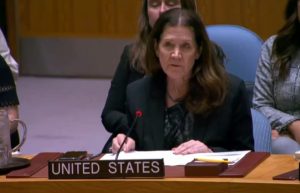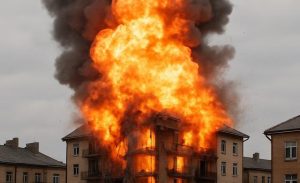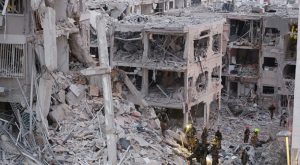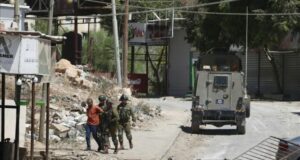 Damascus, 13 Jumadil Akhir 1435/13 April 2014 (MINA) – The Syrian National Coalition for Opposition and Revolutionary Forces has called on the UN to initiate an urgent investigation into the usage of poisonous gas by Bashar al Assad’s regime forces to kill civilians.
Damascus, 13 Jumadil Akhir 1435/13 April 2014 (MINA) – The Syrian National Coalition for Opposition and Revolutionary Forces has called on the UN to initiate an urgent investigation into the usage of poisonous gas by Bashar al Assad’s regime forces to kill civilians.
Meanwhile, the president Bashar al Assad’s regime forces accused once again of using chemical weapons in Syrian civil war.
The Syrian Revolution General Council said Saturday that ten people have been killed in Aleppo after an attack by regime forces using “barrel” and “vacuum” bombs, Anadolu Agency quoted by Mi’raj Islamic News Agency (MINA) as reporting.
The Local Coordination Committee of Syria said that regime forces attacked the suburbs of Damascus and the district of Kafr Zeita in Hama with poisonous gas on Friday.
Also Read: Turkish Intelligence Chief Meets Hamas to Discuss Ceasefire
The silence of the international community in the face of Syrian massacres gives the “green light” to the Assad regime, the coalition said.
The Assad’s regime is accused of continuing to use chemical weapons after agreeing in September 2013 to destroy them.
More than 100,000 people have been killed and over 6.5 million displaced during the ongoing conflict between Assad’s regime and opposition forces.
The United Nations has also warned that a looming drought in Syria could push millions more people into hunger and exacerbate a refugee crisis caused by the three-year conflict.
Also Read: Houthi Launch Another Missile Attack on Israel
Syria’s breadbasket northwestern region has received less than half of the average rainfall since September and, if it stays dry up to wheat harvest time in mid-May, the country – already reliant on aid for millions of people – will need to import even more food.
“A drought could put the lives of millions more people at risk,” Elisabeth Byrs, spokeswoman for the UN aid agency World Food Programme (WFP), told a news briefing on Tuesday.
Based on rainfall data and satellite images, and with the smallest area planted with wheat in 15 years, output of the cereal is likely to be a record low of between 1.7 million and 2 million tonnes, as much as 29 percent less than last year and about half of pre-conflict levels.(T/P012/P04)
Mi’raj Islamic News Agency (MINA)
Also Read: Kuwaiti Academics Call for Boycott of Universities Supporting Israeli Aggression in Gaza
Also Read: Iran’s Supreme Leader Congratulates the Nation on ‘Glorious Victory’ Over Israel
Also Read: Arab Parliament Calls for Emergency Humanitarian Legislation to Support Palestine
Also Read: Backed by Trump, Netanyahu Seeks to Delay Corruption Trial Again






























 Mina Indonesia
Mina Indonesia Mina Arabic
Mina Arabic